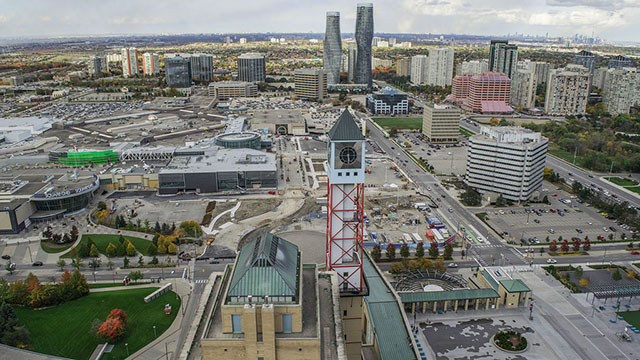Here’s how much taxes will rise in Mississauga in 2020
Published January 22, 2020 at 8:48 pm

After a brief delay, the City of Mississauga has approved the 2020-2023 Business Plan and 2020 Budget.
The budget was presented in late 2019, but approval was delayed until 2020 over concerns that the proposed tax increases–specifically those levied by the Region of Peel–were too high.
“This year’s budget strikes the right balance between keeping taxes around the rate of inflation while ensuring we continue to deliver the high-quality services our residents expect – whether that be transit, recreational programs, local roads, infrastructure, fire and emergency services and greening our city,” said Mayor Bonnie Crombie in a statement.
“We will continue to strive to deliver value for money for residents while making the strategic investments needed to stay competitive, be prepared for future growth and attract people and businesses from around the world. Investing in transit and new initiatives such as the long-awaited Churchill Meadows Community Centre will ensure our City is prepared for the future.”
Residents will see an increase in their property taxes.
For 2020, the overall residential property tax increase will be 3.24 per cent, of which 1.60 per cent is the City of Mississauga’s portion and 1.64 per cent is the Region of Peel’s portion.
This equates to approximately an $88.18 increase on the city’s portion of the property tax based on an average residential property valued at $688,000 (or $12.82 per $100,000 of assessment).
In Mississauga, property taxes are used to fund services provided by the city, the region, and the province (for the Ministry of Education). Of every property tax dollar, 35 per cent goes to the city. The rest is split among the region at 45 per cent, and the province at 20 per cent.
“Our commitment to service excellence, fiscal responsibility and continuous improvement are key elements of our business planning and budgeting activity,” said Janice Baker, City Manager and Chief Administrative Officer, in a statement.
“We have delivered $2.4 million in cost savings in this budget. This is equivalent to reducing the city tax levy by 0.5 per cent. Construction and maintenance costs are rising and we are experiencing growing needs in our city including affordable housing, more transit infrastructure and funding for growth on the waterfront. With competing pressures and priorities the 2 per cent special levy we are continuing to use helps keep our infrastructure in good repair.”
New initiatives in the 2020 Operating Budget total $4.4 million and include:
- MiWay service growth: adding 32,600 service hours and 22 transit operators
- Opening of the new Churchill Meadows Community Centre which includes a triple gymnasium, a 6 lane, 25-meter indoor pool, therapeutic tank, teaching kitchen, and multi-purpose spaces
- Increasing public safety at Mississauga Celebration Square fountain
- Modernizing customer-facing library technology and adding Maker Mississauga Programmers to support library programs
- Supporting the Vision Zero road safety program with the addition of a Program Leader
- Planner and Zoning Examiner to manage demand
As part of the operating budget, council will be investing $3.8 million for the construction of new fire stations, trucks and equipment as well as enhanced public education programs and outreach.
Major projects in the capital budget, which focuses on enhancing and maintaining infrastructure in a state of good repair, total $2.9 billion over 10 years and include:
- Renovation of Central Library and South Common Community Centre and Library
- Begin design for a new Cooksville Community Centre
- Addition of more MiWay buses to support planned service growth
- Redevelopment of Carmen Corbasson and Burnhamthorpe Community Centre pools
- Increased funding to support the approved cycling program
- Construction of six new fire stations
In addition, through the 2020 approved budget, Mississauga residents will see culture grant programs funded through Mississauga’s Municipal Accommodation Tax (MAT) and enhanced winter maintenance service levels funded by the Winter Maintenance Reserve.
An additional $1.6 m was invested for the implementation of 40 km neighbourhood area speed limits, 30 km School Zones within neighbourhoods, and school area community safety zones within all neighbourhoods citywide.
The city’s budget has two components: the budget for property tax-supported services and the budget for Stormwater Charge supported services.
The 2020 Stormwater Program operating budget, excluding transfers to reserves, is $43.8 million. Highlights of the business plan include the development of a comprehensive asset management plan, infrastructure improvements, flood relief improvement projects and community outreach activities.
The Stormwater Charge 2020 increase is set at 2 per cent and amounts to $108.20 per stormwater billing unit. This represents an increase of $2.10 from $106.10 in 2019.
For more details on the City’s budget and the budgeting process, visit mississauga.ca/budget.
Cover photo courtesy of @idris.yyz
This article has been updated to clarify the amount budgeted for new speed zone signage
insauga's Editorial Standards and Policies advertising





